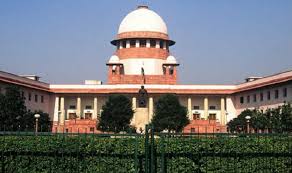
It is of utmost significance to note that none other than the Delhi High Court itself has in a most learned, laudable, landmark and latest judgment titled Saleem vs The State of NCT of Delhi & Anr in Bail Appln 3635/2022 and cited in 2023 LiveLaw (Del) 325 that was pronounced as recently as on April 19, 2023 has issued most commendable directions to its Registry for ensuring that anonymity and confidentiality of the prosecutrix or victim or survivor of sexual offences is strictly maintained in the filings. The Single Judge Bench comprising of Hon’ble Mr Justice Anup Jairam Bhambhani said that the name, parentage, address, social media credentials and photographs of the prosecutrix of victim must not be disclosed including in the memo of parties. It must be noted that the Delhi High Court passed the order while holding that there is no requirement in law to implead the victim of sexual offences as a party to any criminal proceedings instituted by the State or the accused.
At the very outset, this notable judgment sets the ball rolling by first and foremost putting forth in para 1 that, “Does the victim’s right to be heard include the obligation to be impleaded as a party-respondent in criminal proceedings? That is the question sought to be addressed by this judgment.”
Simply put, the Bench states in para 3 that, “The present petition was filed under section 439 read with section 482 of the Code of Criminal Procedure, 1973 (‘Cr.P.C.’), seeking grant of regular bail in case FIR No. 320/2022 registered under section 376 of the Indian Penal Code, 1860 (‘IPC’) and under section 4 of the Protection of Children from Sexual Offences Act, 2012 (‘POCSO Act’) at P.S.: Jaitpur.”
To put things in perspective, the Bench envisages in para 4 that, “On the first date of hearing on 05.12.2022, while issuing notice on the petition, it was observed that the victim in the subject FIR had been made party-respondent in the matter, though her name and particulars had been anonymized or redacted. This, learned counsel for the petitioner said, was done on the specific directions of the Registry of this court. A report in that regard was called from the Registrar (Filing). Vide report dated 05.01.2023, the Registrar cited section 439(1A) Cr.P.C. and Practice Directions dated 24.09.2019 issued by the Delhi High Court, to say that the petitioner was directed to implead the victim as a party-respondent in the present matter in purported compliance and towards implementation of the said statutory provision and the practice directions issued by this court. In addition, the report also said that “… previously verbal directions were given by Hon’ble Court that the victim/complainant be arrayed in the Memo of Parties as respondent after hiding the identity of the victim…”. Reference was also made to an order made by a Coordinate Bench where the appellant therein was granted permission to implead the complainant as party-respondent. The report also said that the same practice was being followed in all matters being filed in this court relating to victims of sexual offences.”
Quite significantly, the Bench enunciates in para 33 that, “Upon a conspectus of the foregoing, this court is persuaded to draw the following conclusions, which it is made clear, are restricted to criminal matters relating to or arising from or concerning sexual offences :
33.1. There is no requirement in law to implead the victim, that is to say, to make the victim a party, to any criminal proceedings, whether instituted by the State or by the accused;
33.2. In accordance with the mandate of the Supreme Court in Jagjit Singh (supra), a victim now has unbridled participatory rights in all criminal proceedings in relation to which the person is a victim, but that in itself is no reason to implead a victim as a party to any such proceedings, unless otherwise specifically so provided in the statute; Section 439(1A) Cr.P.C. mandates that a victim be heard in proceedings relating to bail, without however requiring that the victim be impleaded as a party to bail petitions;
33.3. In light of the decision of the Supreme Court in Jagjit Singh (supra), section 439(1A) Cr.P.C. must now be expanded to include the victim’s right to be heard even in petitions where an accused seeks anticipatory bail; a convict seeks suspension of sentence, parole, furlough, or other such interim relief;
33.4. To obviate any ambiguity, though section 439(1A) Cr.P.C. makes the “presence of the informant” obligatory at the time of hearing, what is clearly mandated thereby is the right of the victim, whether through the informant or other authorised representative, to be effectively heard in the matter. If necessary, legal-aid counsel may be appointed to assist in representing the victim; and the mere ornamental presence of the victim, or their representative, without affording them an effective right of hearing, would not suffice.”
Most significantly, the Bench then minces absolutely no words to hold in para 34 that, “Furthermore, as a sequitur to the above, this court issues the following directions:
34.1. It is directed that the Registry must carefully scrutinise all filings relating to sexual offences, to ensure that the anonymity and confidentiality of the prosecutrix/victim/survivor is strictly maintained;
34.2. To be more specific, in order to maintain confidentiality as aforesaid, the following must be done:
34.2.1. The name, parentage, address, social media credentials and photographs of the prosecutrix/victim/survivor must not be disclosed in the filings made in court, including in the memo of parties;
34.2.2. Though, if the foregoing direction is scrupulously followed, the identifying particulars would not appear in the cause-list, by way of abundant caution, the Registry must ensure that such particulars do not get reflected in the cause-list of the court in any manner;
34.2.3. The name, parentage and address of family members of the prosecutrix/victim/survivor — through whom the prosecutrix/victim/survivor could be identified — must not be disclosed in the filings, including in the memo of parties, even if they are accused in the case, since this may indirectly lead to the identification of the prosecutrix/victim/ survivor;
34.2.4. Since redaction of the identifying particulars of the prosecutrix/victim/survivor from the FIR, chargesheet, proceedings before the trial court and other similar records, is the duty and obligation of the authorities/court that prepare such documents; and insofar as the proceedings before this court are concerned, making complete redaction in each of those documents may not be feasible, it is also directed that the files/paper-books/e-portfolio of matters relating to sexual offences filed in this court must not be provided to any person other than the parties to the litigation, to the prosecutrix/victim/survivor and their respective counsel, after due verification of the identity credentials of such persons;
34.2.5. At the stage of scrutiny of the filings, in the event the Registry finds that the identity credentials of a prosecutrix/victim/survivor are disclosed in the memo of parties or anywhere else in the filings, such filings must be returned to counsel who have filed the same, to undertake requisite redactions, before the filings are accepted;
34.2.6. To obviate the dissemination of identifying particulars to any other person or agency even within the High Court, it is further directed that all service to be effected upon the prosecutrix/victim/survivor shall only be through the Investigating Officer in accordance with Practice Directions dated 24.09.2019 and not through the process serving agency, though a copy of the petition or application must be served upon the prosecutrix/victim/survivor;
34.2.7. In effecting service as aforesaid, the Investigating Officer must remain in ‘plain clothes’ so as to avoid any unwarranted attention;
34.2.8. Furthermore, the Investigating Officer must also inform the prosecutrix/victim/survivor that they have the right to free legal-aid/representation in accordance with the mandate of the Supreme Court in Delhi Domestic Working Women’s Forum vs. Union of India & Ors (1995) 1 SCC 14 cf para 15
34.2.9. If the parties wish to cite in court any identifying particulars of the prosecutrix/victim/survivor, including photographs or social media communications etc., such party may bring the same to court in ‘sealed cover’; or file the same in ‘sealed cover’ or in a ‘pass-code locked’ electronic folder and share the pass-code only with the concerned Court Master.
34.3. The foregoing directions are not intended to be exhaustive; and at the stage of scrutiny, the Registry is expected to apply its mind to any peculiarities of a given case, with the aim and intent of scrupulously applying the directions of the Supreme Court in Nipun Saxena (supra).
34.4. Lastly, the directions issued above may be summarized by way of written instructions/note/notification by the Registrar General of this court; and be circulated to
the Principal District & Sessions Judges, Delhi in their respective jurisdictions and to the Commissioner of Police, Delhi.
34.5. The Registrar General is directed to bring this judgment to the notice of Hon’ble the Chief Justice for framing of appropriate practice directions or notice or notification, as may be deemed appropriate, in-line with the mandate with the directions of Nipun Saxena (supra).”
As we see, the Bench then hastens to add in para 35 stating that, “This court records its appreciation for the invaluable assistance rendered in the matter by Ms. Rebecca M. John, learned senior counsel as Amicus Curiae.”
In sum, the Delhi High Court has very rightly directed the Registry to ensure confidentiality of victims of sexual offences. The Registry must comply with the same accordingly! No denying it!














